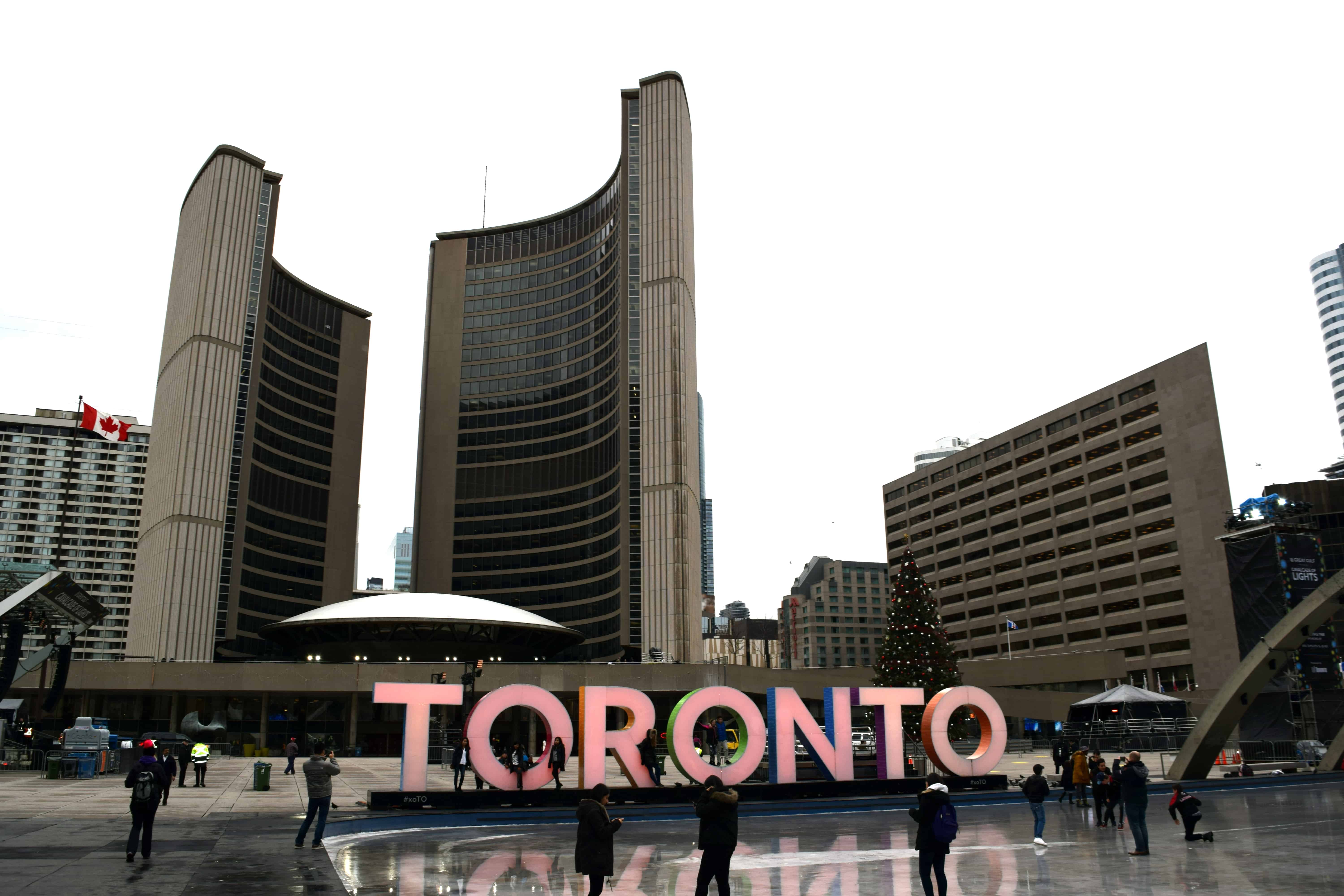Many would argue that Toronto is experiencing a boost in civic pride as of late. With the post-season achievements of the Blue Jays and the Raptors, combined with the international success of Drake, Torontonians appear to be increasingly proud to call their city home. In line with this trend, ‘neighbourhood pride’ toques and subway buttons are becoming increasingly popular — the UTSU even hopped on the bandwagon this year with their line of Uof6ix shirts and baseball caps.
Municipal politicians like Mayor John Tory and Councillor Norm Kelly are also capitalizing on these trends. These days, both politicians are often seen publicly touting Toronto’s recent cultural and sporting successes on the international stage, while insisting that life in Toronto is constantly improving.
When considering the city’s persistent social problems, however, Torontonians may have less to celebrate than they realize. Income inequality in Toronto is rising at twice the rate of the national average. The city’s Gini coefficient, an international measure of income inequality in which 1 represents complete inequality, is 0.4. This makes Toronto the third most inequitable city in Canada, behind Calgary and Halifax.
The region’s top one per cent of income earners now share 17.5 per cent of total income. More than half of Torontonians are employed in precarious work, and one in four children in the city live in poverty.
Despite these troubling indicators, Toronto has bought into one great civic myth for the past two years: that neoliberalism is working and that the life of Torontonians is improving. While promoting ‘Toronto pride,’ both Kelly and Tory have slowly advanced a neoliberal agenda, which has only exacerbated socioeconomic issues in the city.
Kelly, who became a local pop culture icon when he defended Drake against Meek Mill on Twitter last year, is perhaps the greatest embodiment of this mythical civic pride. At the age of 75, Kelly — whose municipal ward has an unemployment rate higher than the city’s average and whose constituents’ annual income is $20,000 below that of the average Torontonian — has become popular with millennials. This is despite the fact that he often supports the most damaging policies on city council’s agenda.
During Mayor Rob Ford’s tenure, Kelly supported the sell-off of public housing units, the elimination of the Aboriginal Affairs Board, and the privatization of garbage collection and public parking. Kelly even voted to eliminate the Youth Cabinet in 2011, which may be surprising to the young people in the city who idolize him. While publicizing the good life in Toronto, Kelly continues to support municipal policies and initiatives that make life for Torontonians more difficult, a fact that is often eclipsed by his popularity on social media.
Similarly, Tory is increasingly becoming the mayor of professional millennials who live in Liberty Village, work in the Financial District, and go clubbing along King Street on the weekends. Those who support him do not seem to be the Torontonians who most urgently need improvements to the city’s infrastructure and transit.
Tory’s moderate plans to expand city growth, which stress fiscal responsibility and the maintenance of the status quo, do not provide significant aid to the city’s lowest-income residents.
Tory has refused to raise the city’s property taxes, a change that, considering the high cost of housing in the city, would likely impact mostly those wealthy enough to own a home. Meanwhile, user fees on the TTC have continually increased, which disproportionately harms low-income residents.
Nevertheless, Tory certainly talks a good talk. His ability to consistently evoke the impression that he considers all options on the table and then selects the most pragmatic solution for improving the city has led to record-high approval ratings for the mayor. He presents himself as a man above partisan politics and the impassioned debates of City Hall; yet, his ‘supra-political’ decisions certainly should be questioned.
In July, Tory voted against agenda items meant to protect childcare spaces, social housing, and fee protection for low-income residents. His irrational support of the Scarborough subway line — which will cost more than the Light Rail Transit (LRT) line that would have opened development in the city’s east end and instantly connected 45,000 low-income residents to the downtown core — is clearly not an apolitical decision.
Furthermore, his SmartTrack plan, even when combined with the Scarborough subway extension, completely voids connecting Toronto’s most racialized communities to city hotspots. These communities would arguably have been better served by an LRT. Finally, Tory’s demand that all city departments find 2.6 per cent worth of reductions in next year’s budget contradicts the impression that he prioritizes city-building.
Toronto has experienced trends in civic pride in the past. In the late 1980s, Toronto became a proud centre for LGBTQ+ rights and multiculturalism. In the mid-2000s, Toronto could tout its environmental actions to the world. Yet today’s trends in civic pride, based around pop stars and sports teams, have only allowed civic leaders like Kelly and Tory to advance a neoliberal agenda under the guise that, since the city’s sports teams are winning, the city is improving as well.
Instead, the roots of the city’s civic pride should lie in its achievements in social, political, and environmental policy. It would be exciting to see millennials rally around municipal politicians who are promoting real social change, not just politicians who tweet the right tweets. Examples include Shelley Carroll, who is experimenting with making government more accessible with participatory budgeting; Joe Mihevc, who is pressing for low-income transit passes; and Joe Cressy and Mike Layton, who are lobbying the Ontario government to release the city from the damaging Ontario Municipal Board.
We should acknowledge that the changes being pushed by the city’s more prominent politicians often miss the mark, and that there is much work to be done before we can be truly proud of what has been accomplished.
James Chapman is a second-year student at Innis College studying Political Science and Urban Studies.


